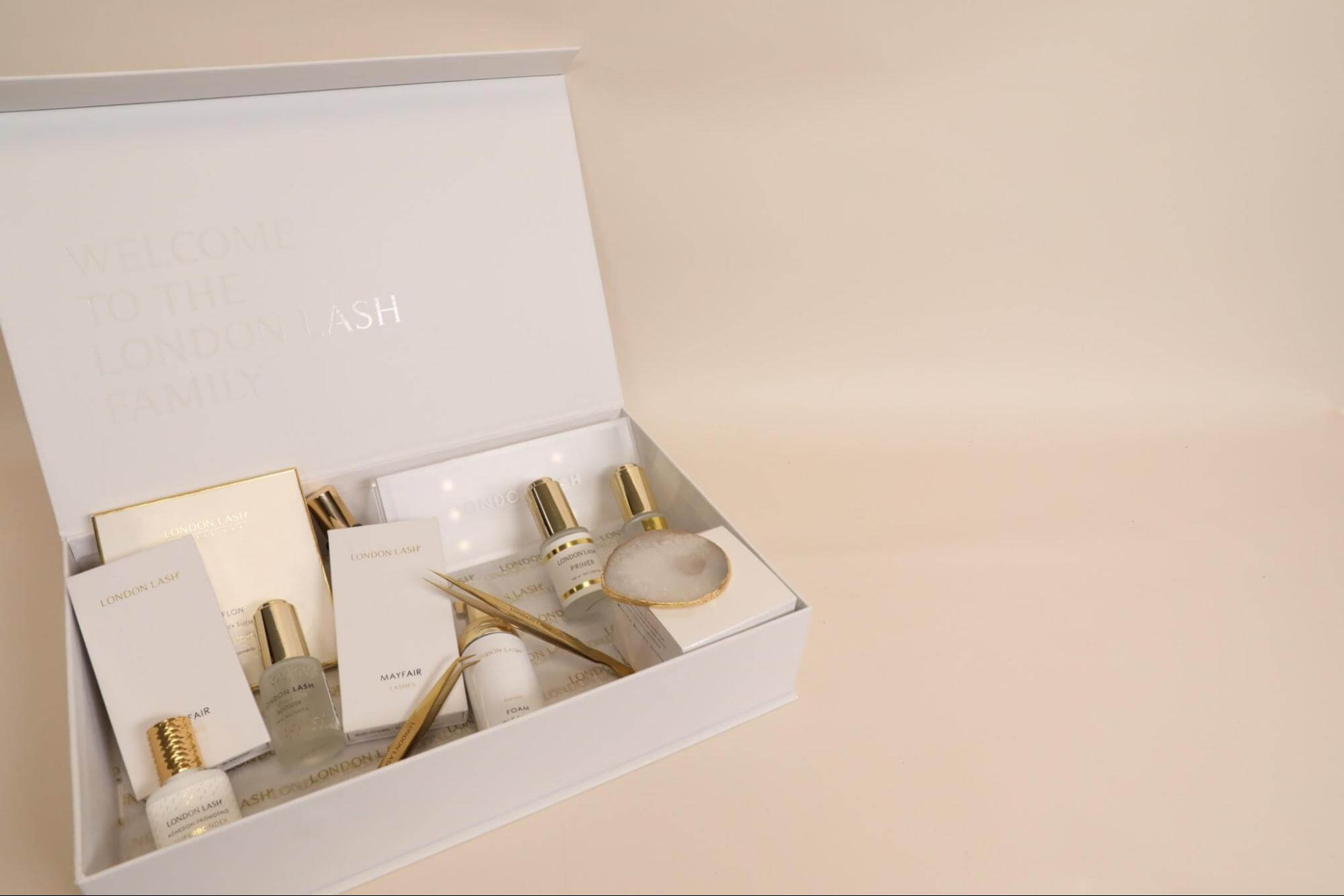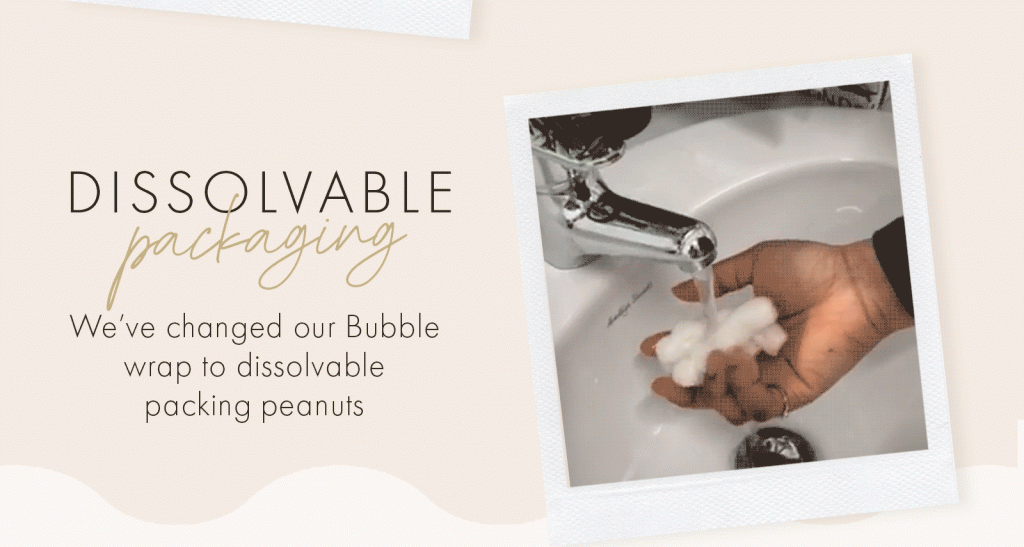How to Make Your Cosmetics Brand More Sustainable with Eco-Friendly Packaging

- 200+ templates & patterns
- Real time 3D packaging preview
- Upload logo and choose brand colours

Subscribe now! Receive 15% discount.
Don’t miss out – get 15% off your first order when you join the newsletter. It’s fast, free, and kinda smart.
You're now subscribed!
In this article:
This guest post was written by Holly Barrow, who is a marketing executive at London Lash Pro - a leading supplier of eyelash extensions and products for professional lash technicians
In recent years, the growing demand for sustainability within the cosmetics industry has led many brands - both big and small - to reevaluate everything from product development to packaging supplies.
With the rising threat of the climate crisis, brands have come to recognise the sense of urgency attached to consumer demands for commitment to environmental protection:
Act now, or risk slipping beneath the radar as your more sustainable competitors earn your target audience.
This article will help you to:
- Identify what cosmetics brands can do to become more sustainable
- Recognise what greenwashing is, and why you should avoid it
- Understand the importance of eco-friendly packaging
While transportation and electricity production undeniably remain the biggest contributors to global heating, commercial industries such as beauty and cosmetics cannot be underestimated.
In 2019, Business Insider reported that the beauty industry was valued at $532 billion and remained on an upward trajectory. While it’s great that our industry is thriving, it also comes with grave concerns.

From the toxic chemicals used in cosmetics which end up down our drains and into the oceans - causing extreme damage to the ecosystem - to cosmetic packaging which can take hundreds of years to break down in landfill, there is a desperate need for brands to take action, and fast. The answer to this, however, isn’t greenwashing.
What is greenwashing?
Since the demand for sustainability is at an all-time high, a number of companies have viewed this as no more than a marketing opportunity to make even more profit.
By slapping popular buzzwords onto their product packaging, such as ‘sustainable’, ‘eco-friendly’, ‘clean’, and ‘natural’ while doing the bare minimum to actually action these claims, they are treating sustainability as nothing other than a profitable trend.
Corporate greenwashing exploits consumers by making misleading claims as they attempt to appear progressive and eco-friendly solely to expand their revenue.
Do you really believe that the largest cosmetic brands source their ingredients from places like this?

If brands spent more time actually making their products environmentally friendly rather than simply pushing the marketing of their products as environmentally friendly, the world would be a better place!
It is important to note, however, that while there are a number of brands who simply wish to exploit the rise of sustainability, there are also those making a conscious effort to minimise their impact on the environment - no matter how small this may initially seem.
Those taking clear steps to make their products and packaging more environmentally friendly might not have it all sorted out just yet - but that doesn’t make them an example of corporate greenwashing.
There is a fine line between the two.

You may not have the budget just yet to completely overhaul your manufacturing processes, but as long as you’re honest about this and admit that, while you are taking x, y and z steps to reduce your carbon footprint, you still have a long way to go, your customers will value your transparency.
Becoming a sustainable brand is no easy feat - it takes time, money and research.
But reviewing your procedures and doing as much as you possibly can to reduce your contribution to global heating is a must.
So what steps can cosmetics brands actually take to reduce their carbon footprint?
If we hone in on cosmetics packaging specifically, there are a number of ways that beauty and cosmetics suppliers can, and should, be making changes.
From McDonald’s to ASOS, brands are becoming increasingly aware that they need to review their contribution to excessive waste by ditching the single-use plastic and replacing it with recyclable alternatives.
The same can be seen throughout the cosmetics industry.
As previously noted, a recent study found that:
- 30% of consumers revealed they are willing to pay a premium for products that deliver on sustainability claims
- 37% of US consumers prioritise sustainability when making purchases
These statistics speak for themselves, which is why many brands are rapidly undergoing changes to deliver on the demand for sustainability.
If you are looking to make these changes within your own organisation, packaging is a great place to start.
Product Packaging
Cosmetics and beauty items are renowned for being stored in plastic containers - from mascara to lipsticks.
As an eyelash extension supplier, we knew we had to make changes to our own packaging - and this started with our lash trays.
Initially, we used a sleek design containing spot UV print and magnetic elements - only we recognised that these were not recyclable in all areas.
As much as we loved the magnetic element, we knew it was crucial to prioritise what really matters - in this case, doing our utmost to protect the planet.
So, to combat this, we removed these elements while working hard to maintain that same sleek design.

Paper alternatives
When it came to packing our orders for delivery, we initially used bubble wrap to protect our products during transit.
But again - we knew changes were needed. Bubble wrap is made from non-biodegradable plastics, which wreak havoc on the environment.
So we switched this out, now using protective paper mailers.
Additionally, we stopped using plastic bags to hold our lash trays, moved from plastic packaging tape to Kraft paper tape and also implemented biodegradable and recyclable padded envelopes.

And perhaps our favourite part - we said goodbye to the polystyrene chips (a plastic formed from liquid hydrocarbon styrene, which is not recyclable and very slow to biodegrade) and said hello to our new biodegradable chips.
These are made from starch and dissolve when held under running water, meaning they not only reduce wastage but are also ridiculously satisfying!

These small changes can make a huge difference in the long-run.
Glass alternatives
Previously, we used plastic bottles to contain many of our liquid products.
We got rid of these and instead introduced elegant, recyclable glass bottles - glass can be repeatedly repurposed whereas not all plastics can be recycled.
In addition, when glass breaks down, it remains safe and exerts no toxins which can often be observed with plastic degeneration.

Moving Forward
The work is far from over for the beauty and cosmetics industry - we have a long way to go.
But these changes do matter and they do make a difference.
When you look at ways your beauty brand can make the necessary changes, packaging may seem minor.
But moving to more environmentally friendly packaging can reduce solid waste, water usage, electricity and emissions.




























